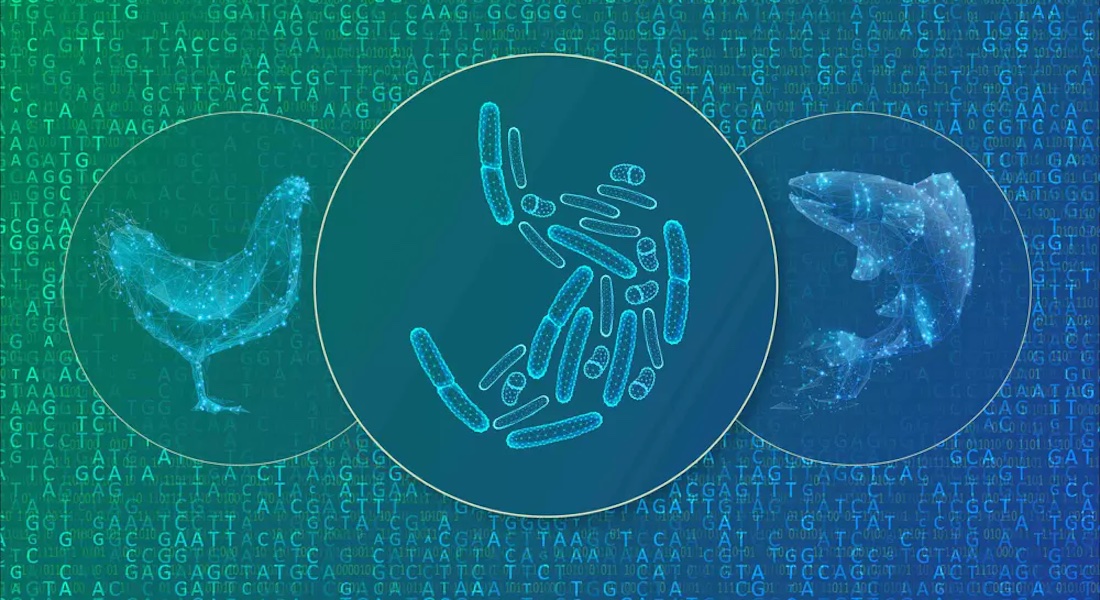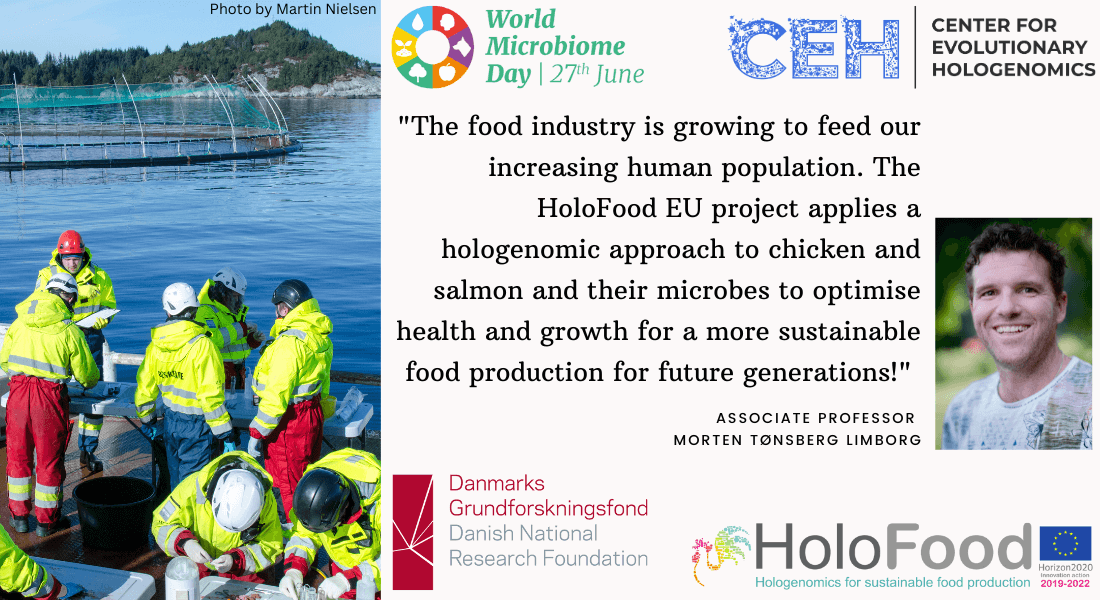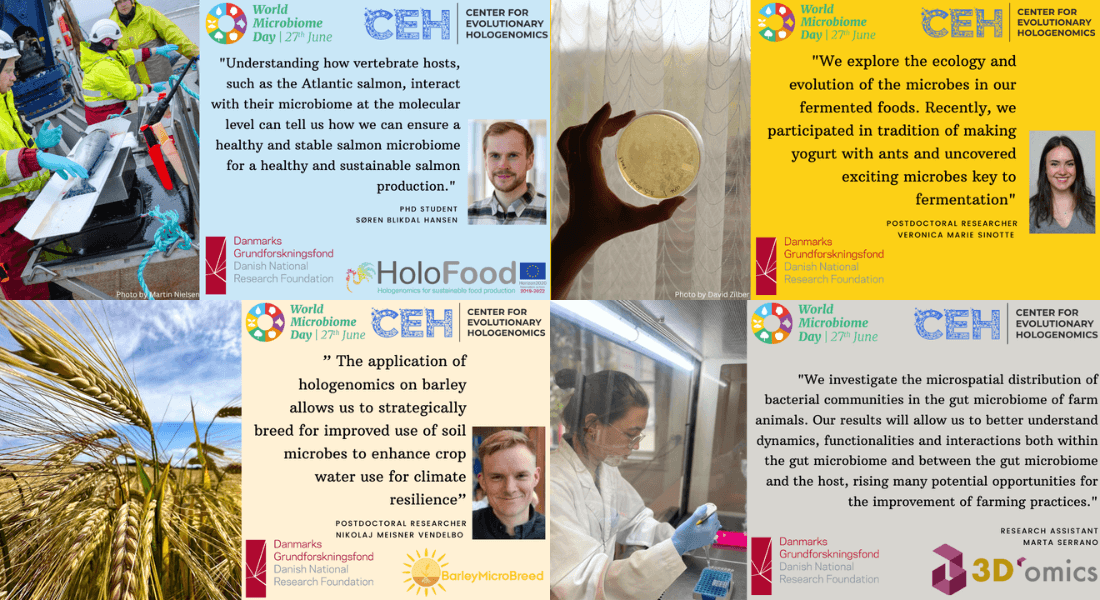Celebrating World Microbiome Day with the world's first holobiont data portal
As a leading research institution within the field of hologenomics and microbiome research, Center for Evolutionary Hologenomics proudly participated in the global celebration of World Microbiome Day and on the very same day the HoloFood project released the world's first data portal with freely available holobiont data. Making our social media campaigns on Twitter and LinkedIn highly engaging.

World Microbiome Day, happening annually on June 27th, aims to raise awareness about the crucial role of microbes. As an institution committed to advancing microbiome research, Center for Evolutionary Hologenomics (CEH) took this opportunity to highlight its important contributions and engage with fellow researchers as well as the wider scientific and public community.
Healthier food for a healthier planet
This year's theme was “Food and Microbes” making it the perfect opportunity to share highlights from some of our large EU projects working on improving food production by applying a hologenomic approach. Hence throughout the day, our Twitter and LinkedIn accounts were abuzz with a series of informative posts and captivating visuals, shedding light on our amazing researchers and research assistants ongoing research on microbes related to food.
Our large Horizon 2020 EU project HoloFood came to an end in June and celebrated some of its amazing achievements on World Microbiome Day. The project highlighted one of the project grand deliverables: a hologenomics data portal. The data portal is the first of its kind providing free comprehensive biomolecular data for researchers to understand the microbial diversity in chicken and salmon gut, and how changes in diet affect animal health.
Free holobiont data for a more sustainable future
The HoloFood data portal consists of hologenomic data from not only the host organisms but also all of its associated microbes (together the holobiont) for researchers to explore more sustainable feed alternatives for chicken and salmon. This Hologenomics insight has the potential to increase both the health of the animals and to make the agriculture and aquaculture industries more sustainable. Read more about the HoloFood project and the data portal here.

One of the posts on World Microbiome Day was about the HoloFood project by Morten Limborg: #Microbes play an essential role in our food 🦠🐟🐓 The food industry is growing to feed our increasing population. @HoloFood_EU applies a #hologenomic approach to #salmon, #chicken and their #microbes for a more #sustainable #FoodProduction in the future! #HorizonEU #Food2030EU
Chicken, salmon, barley and yoghurt
CEH further showcased some of our cutting-edge research into the microbiomes of various animal and plant species, including chicken, salmon and barley - from the HoloFood, 3D'omics and BarleyMicroBreed projects - underscoring the importance of understanding these microbial communities for animal and crop health, conservation, and a more sustainable aquaculture and agriculture.
Another exciting focus for some of our researchers is exploring microbes in fermented foods including traditional yoghurt. They explore the ecology and evolution of microbes in fermented foods as they are key to understanding how fermented foods might influence our health.

We hope that our social media campaign not only celebrated World Microbiome Day but also inspired researchers and foundations worldwide to further explore the wonders of the microbiome and the field of hologenomics and its implications for One Health and that the HoloFood data portal will prove useful to future research within this exciting groundbreaking field of hologenomics.
Follow CEH on our Twitter and LinkedIn accounts for more exciting updates.
Contact:
Communication responsible Christina Noer
Topics
Contact
Aqqalu Rosing-Asvid
Senior Scientist, Ph.D
Greenland Institute of Natural Resources
Kivioq 2, P.o.Box 570, DK-3900 Nuuk, Greenland
Phone: +299 36 1247
Email: aqqalu@natur.gl
Morten Tange Olsen
Associate Professor, Ph.D.
Section for Molecular Ecology and Evolution
Globe Institute
University of Copenhagen
Email: morten.olsen@sund.ku.dk
Phone: +45 42 66 15 25
